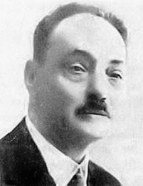

The work he submitted in 1904 as part of his application for a post on the Humanities Course was O Helenismo ou a persistência da cultura helénica através da civilização (Hellenism or the persistence of the Hellenic culture over the course of civilisation). In it, he displays his love of themes from classical history and for the history and evolution of not only European civilisation, but that of the whole of the Mediterranean basin, including Arab culture. As time passed, A.F. focused on more recent topics, in which he was concerned to justify the new political reality that had arisen out of the creation of the Portuguese Republic. He argued that humanity was in an evolutionary process, gradually moving towards the implementation of a fairer society, as represented by the establishment of republican democracy. He thus narrated the history of Portugal in a way that was interventionist and sometimes pessimistic. He developed his historiographical views under the influence of Teófilo Braga’s republican perspective and teachings, adopting both liberal historiography’s critical discourse on the country’s decadence and the republican propensity to study contemporary history. Following the traditional liberal and republican historiography, he argued that since the mid-16th century, Portugal had been experiencing a deep crisis that was reflected in all the various sectors of society and had caused the process of decadence the country was living through in his own day. He outlined the causes that sparked the crisis Portugal underwent when the Expansion began. This pessimistic vision of history is clearly influenced by the work of Oliveira Martins. In addition, in the back of A.F.’s mind there was always present the slowdown in the process of evolution towards a better society that occurred from the sixteenth century onwards, in a period in which royal power was strengthened as the crown subjected the nobility and gained control of municipal powers. As a result, A.F. took up the criticism of Absolutism in general and the Bragança family in particular, saying that the period in which the Marquis of Pombal led the government was an interlude in the country’s decadence. In A.F.’s writing, the people were the key element in the greatest events in Portuguese history, but he also saw them as the receptacle for the Nation’s “primary qualities”, imbued with liberal and democratic ideas and patriotism.
His historiographical thinking was characterised by a diffuse ideological eclecticism, in which we can see influences of republican ideology, positivism, evolutionism and the ideas of Karl Marx, which serve as a structure for a criticism of Portugal’s past and a teleological perspective on the country’s history.
